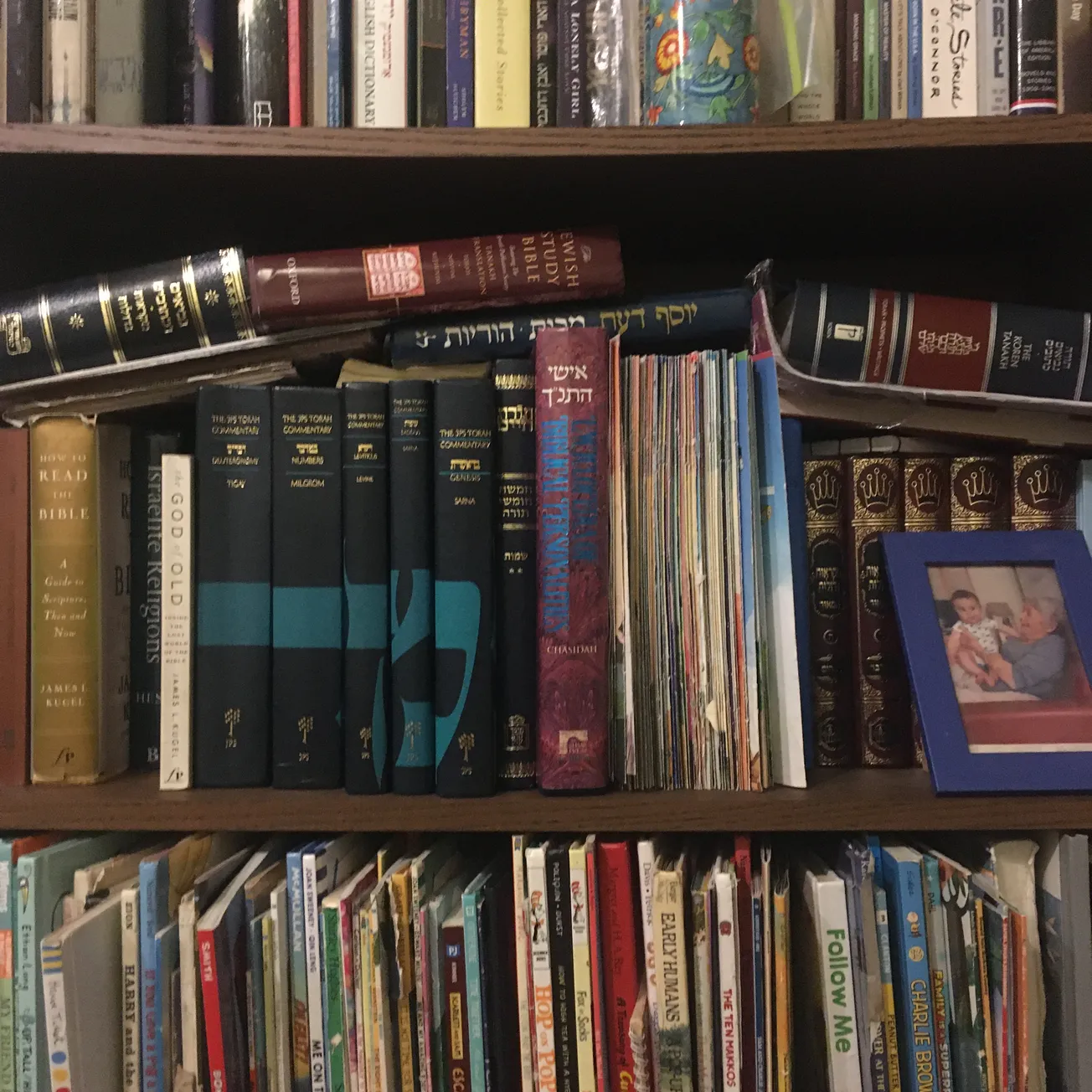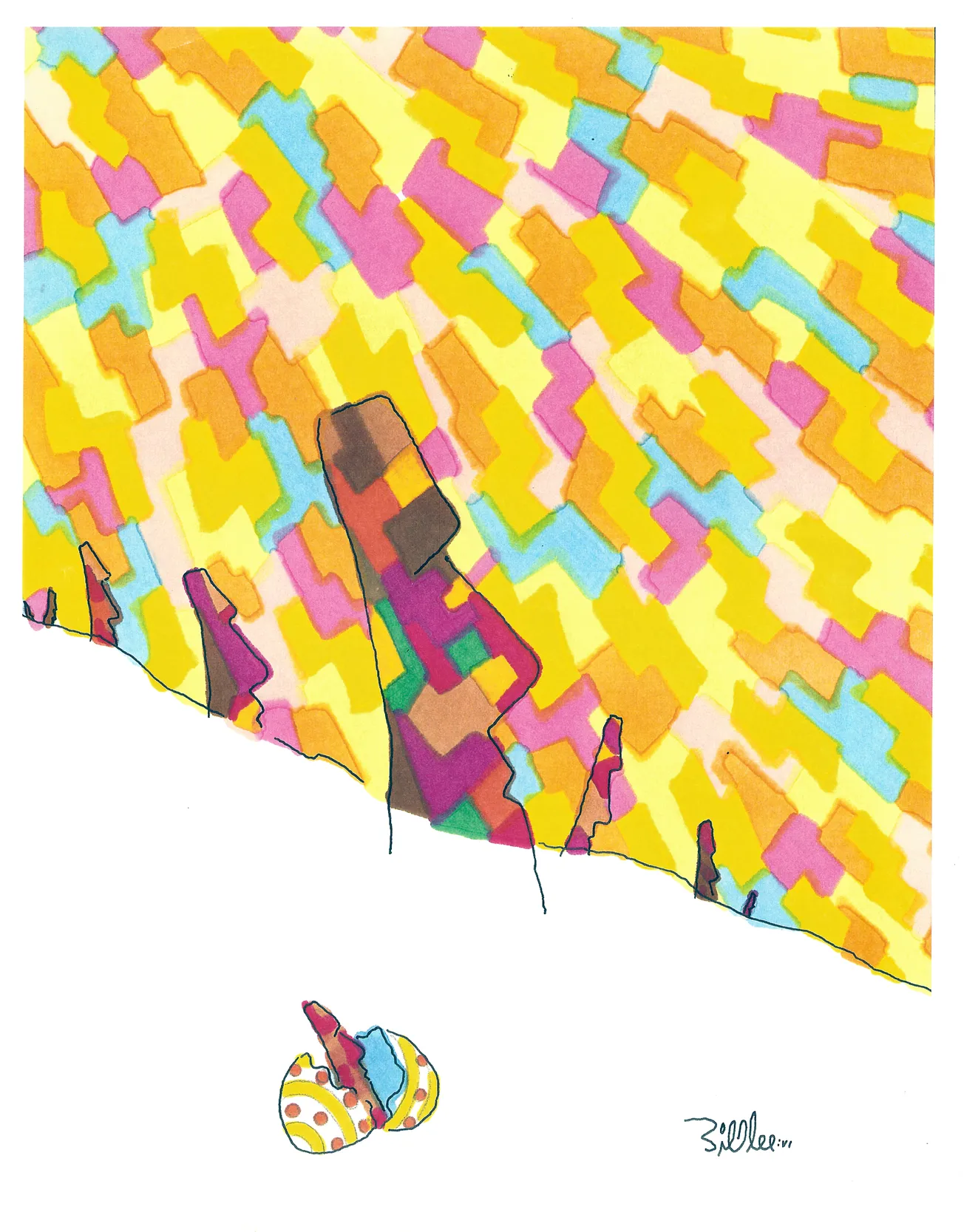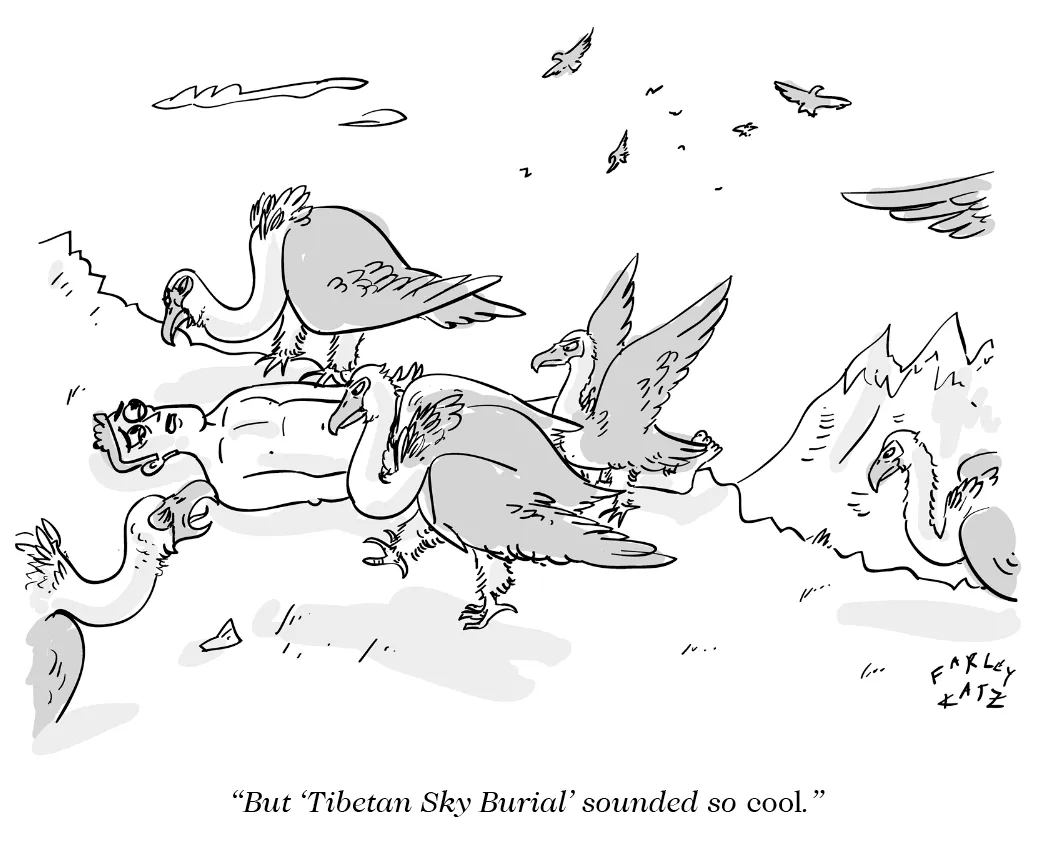All the smart kids at my middle school took a class called “Chidon Ha-Tanach,” which means “Bible Contest.” It was offered to 7th and 8th Graders who wanted to compete in the regional stages of an international Tanach competition—a chance for fame and glory, sort of. The finals in Israel would be televised. I wanted in.
Chidon replaced our regular Tanach class. This was attractive insofar as Chidon was a study hall situation with minimal supervision. It much have been a cinch to teach. Mostly we were supposed to read passages over and over and over (and over), until eventually some sort of spontaneous absorption event would supposedly occur. For some, maybe it even did.
I was an unnatural at this sort of thing. It takes a very particular person to excel at this contest—a genius, more or less. Meanwhile, even as a kid I couldn’t hold on to names. To this day I am a liability on trivia teams. I say “Laura Ingalls Wilder” when I mean Harriet Beecher Stowe. My mind is less a steel trap and more a, uhh, that other thing, with the handle? It doesn’t sound like “foom” but feels like it? I’m sure you know what I mean.
To illustrate, here is a passage I remember struggling with. It’s from Devarim (a.k.a. Deuteronomy) where God warns Israel not to mess with Moab. “Do not harass the Moabites or provoke them to war,” saith he. “I will not give you any of their land as a possession.” Fair enough.
The verse, however, continues:
“[Moab] was formerly inhabited by the Emim, a people great and numerous, and as tall as the Anakites. Like the Anakites, they are counted as Rephaim; but the Moabites call them Emim.”
With no action, four proper nouns, and two passive verbs, this is the perfect Chidon verse. Having read it just seconds ago, why don’t you test yourself with the following multiple-choice question:
Which group is NOT counted as Rephaim?
a) Moabites
b) Anakim
c) Emim
d) None of the Above
Did you answer Anakim? That’s wrong, but congratulations—your brain, like mine, is not exactly top-notch Chidon Ha-Tanach material.
But I gave it an honest shot, I really did.
I didn’t make it to Israel.

You’d think Jews wouldn’t need contests to motivate study of the Hebrew Bible. Are we not “the People of the Book”? Yes, but wrong book—you’re thinking of The Torah. Or maybe the Talmud. Not Nehemiah.
The right-wing branches of Orthodoxy, as a rule, aren’t particularly interested in the prophets or later biblical writings. Case in point, the other day I was playing baseball with a kid behind my apartment building. His 4th Grade class is studying the Exodus and a section of the Talmud about Yom Kippur. No Joshua, no Judges, no Kings, nothing else Biblical. After he told me this, I struck him out and my son went up to bat.
I was brought up in Modern Orthodoxy. This twist on tradition allows (encourages?) adherents to act like a “normal” Americans. Pray at the yeshiva and go shop with suburbia. You should play ice hockey, but only on a Shabbat-observant team that doesn’t play on Saturdays. At school you learn ancient Aramaic; at home you watch South Park.
Modern Orthodoxy has comparatively more interest in the Bible—hence participation in Chidon. Our school’s Bible curriculum included the books of Joshua, Judges, and Samuel. The primary goal, however, was not moral or religious instruction but fluency. We were supposed to graduate being able to read the original text and its commentaries. There were vocabulary lists, comprehension quizzes, workbook questions, and chapter tests. It was Chidon-lite, and the stories always came second.

Traditional Jewish theology has it that God handed the law and the Torah to Moses at Mount Sinai. This revelation was witnessed by the entire people of Israel—a few hundred thousand ex-slaves. The rest of the Bible comes from later prophets, faithful antennae of the divine word. Thus contemporary Jewish practice is rooted in a (mostly) unbroken chain of transmission from above.
By my late teens, I felt this story slipping away. This bummed me out, and not just because of metaphysical collapse. At the end of the day, I was a good yeshiva student and proud of my brand of Judaism. The Orthodox world contained everyone I knew and nearly everything I had done. Disbelief has ramifications in this context—I didn’t want to leave my community. But by the time I entered college I had to admit that the story had fully flown my coop, and for a time I fell into a depression.
For about a week in my freshman year, as I faced up to the fact of my disbelief, I was truly lost. I skipped classes. I wandered around campus at night. I couldn’t stop thinking about the teachers I had worked so hard to impress. What would they say? I was ashamed and scared.
Then, after some time, I began to put the pieces back together. Not a return to belief, really, as much as recognition that nobody else could tell me what to do, and I’d have to decide on my own.
What I landed on was sticking with the program. To this day, I only eat food held to the most annoying standards of kosher supervision. I observe Shabbat precisely in the way I was raised to. I try to keep all the practices of Jewish law, even the really dumb ones invented by sleep-deprived kabbalists a few hundred years ago, like which shoe you’re supposed to tie first (it is the left, because of demons).
Some other time we can go deeper into the half-assed theology that undergirds my current religious life, but here’s something nice that surprised me: freed from my fear of grappling with a perfectly divine text, I found myself much more interested in the Bible.
The Bible, it turns out, is a lot more than demographic trivia. To start, it’s absolutely stuffed with whores. It also features, forgive me, some very funny deaths. Somehow an entire book of erotic poems got canonized. And there’s more: Job and Ecclesiastes are deeply skeptical works; Esther is a sex romp; Ruth is fanfic; Judges is absolutely filthy. Yes, there are boring parts, but overall we’re talking about a fantastically strange collection of texts.
And where I’m at is, I want to tell these stories. They’re my stories, and I like them. I think you’ll like them. You’re a heathen—so what? The Bible is littered with heathens. Fine, dead heathens, but they die in such interesting ways.
Modernity, I don’t need to tell you, is a mess. Messy times call for messy stories. And no matter what you’ve heard, that’s what the Bible is. Bless this mess.
Speaking of Moab, do you know their origin story? It goes like this. Lot and his daughters escape from the destroyed Sodom. His two daughters figure that God has taken out not just Sodom, but all of humanity. God must love them so much, that they are the last three people to survive.
The girls must swallow their pride and procreate. With daddy.
Deuteronomy says that Moab showed up when they displaced the Emim, who were as tall as Anakites, and counted as Rephaim, but the fun part begins much earlier, when a pair of foolish girls ply their father with drink and trick him into sleeping with and impregnating them.
The daughters give birth to two beautiful boys. One is named Amon; the other, Moab.
That’s twisted. That’s gross. That’s wrong. That’s sacred. That’s sick. That, in short, is my Bible, and why I tell its stories.





